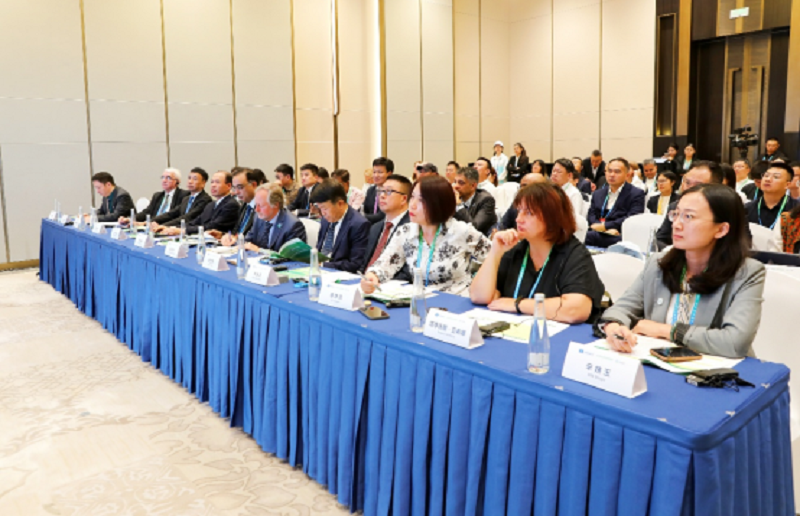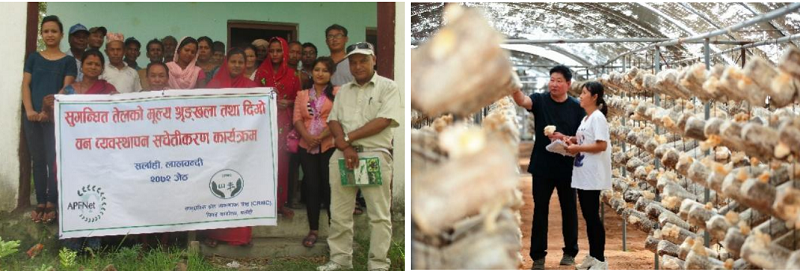The 5th World Congress of Biosphere Reserves took place from September 22 to 26, 2025, in Hangzhou, China. Marking the first time the congress was held in Asia, the event drew around 4,000 participants from more than 150 economies worldwide.

Promoting the Value Transformation of Ecological Products to Support High-Quality Sustainable Green Development” Side Event. (Photo/UNESCO)
On the opening day, a side event titled Promoting Ecological Product Value Conversion for High-Quality Sustainable Green Development was hosted by UNESCO's East Asia Office and the Forestry and Grassland Bureau of Heilongjiang Province, and co-organized by APFNet and the Chinese Academy of Forestry. The event focused on advancing practical implementation to enhance the value of ecological products as a pathway toward global green development. Representatives from UNESCO, National Forestry and Grassland Administration of China, the Embassy of Belgium, the Man and Biosphere National Committees of Kazakhstan and Russia, and other organizations attended the side event, sharing innovative models and case studies in the green economy.
APFNet contributed by presenting its project case study from Myanmar's Pyindaye Mangrove Forest Reserve, where community livelihood improvement was integrated with mangrove conservation. Other highlighted examples included, helping communities to establish small- and medium-sized forest enterprises based on wooden handicrafts, understory herbs and ecotourism in Nepal; and supporting state-owned forest farms and nature reserves in China to diversify local economies through mushroom and medicinal plant cultivation, understory flower farming, ecotourism, and nature education.

APFNet supported communities in Nepal establish medium-sized forest enterprises(L)and China’s state-owned forest farm plant and develop mushroom business(R).
These experiences showcased how ecological product value transformation can generate sustainable income opportunities while protecting ecosystems. Moving forward, APFNet will continue to develop new models of ecological industrialization through its demonstration projects. By leveraging regional ecological resources with local conditions, APFNet will explore pathways to enhance ecological product value, support sustainable and diversified community livelihoods, and foster regional sustainable development.